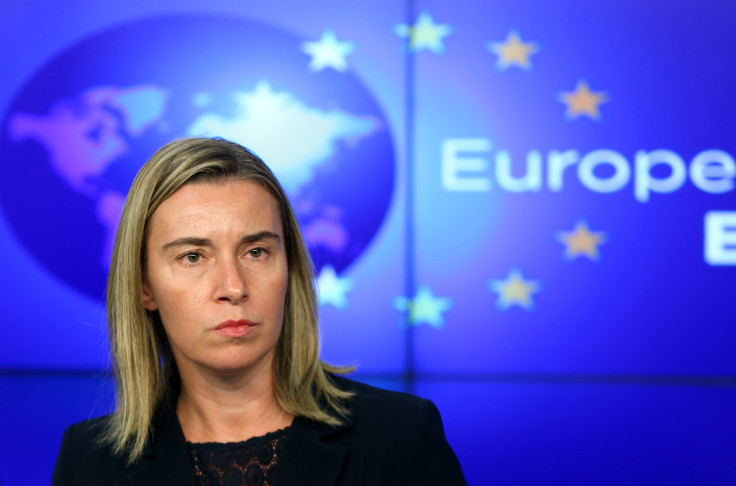EU Sanctions Against Russia: Foreign Minister Says More Could Come As Ukraine Heats Up

Russia could see more sanctions from Europe as the situation in Ukraine appears to be worsening, according to the European Union’s new foreign policy chief. Violence on the ground and illegal elections in rebel-held territory in eastern Ukraine have threatened to send Ukraine back into a state of conflict in recent days.
“The so-called elections were a very negative sign,” Federica Mogherini, the EU's High Representative of the Union for Foreign Affairs and Security Policy, said in a joint press conference with Polish Foreign Minister Grezgorz Schetyna on Thursday. “The situation on the ground is extremely negative. … So we will need to discuss both what kind of next step we take both on the political level, what form of dialogue and political channel we put in place and also on our strategy on sanctions.”
Both the Donetsk People’s Republic and the Luhansk People’s Republic, the two self-declared separatist states in Ukraine’s east, held elections for their presidents on Nov. 2, days after Ukraine’s own parliamentary elections. The elections went against a Sept. 5 truce between the rebels and the Ukrainian government that laid out plans for Ukrainian-run elections in the rebel territories in December.
Ukrainian President Petro Poroshenko said on Tuesday that the elections jeopardize “the entire peace process” and his government was a “firm supporter of the peace plan.” Still, he threatened to nix plans laid out in the Sept. 5 agreement that would grant special status to the rebel areas. The U.S. and Europe joined him in condemning the elections, while the Russian government said it “respected the will of the people of the south-east [rebel areas].”
Ukraine’s military spokesman Andriy Lysenko accused Russia of massing troops and equipment in the rebel-held territories along the Russian border. Shelling in Donetsk this week has killed a handful of civilians, including some children. Amnesty International accused both sides of "ignoring their legal obligation and failing to protect civilians."
Mogherini said the EU’s vocal support of the Ukraine’s territorial integrity was “not just nice words” and that it would shape how the EU responds to violence there, according to Reuters. Her words echo those of German Chancellor Angela Merkel, who said the EU should expand sanctions on Russian individuals linked to the crisis.
The 41-year-old Italian former parliament member and Italian foreign minister hit the ground running after taking office as the EU foreign minister on Nov. 1, bucking criticism from eastern European states that she would not be tough enough on Russia. Mogherini’s trip to Poland was the first official visit as foreign minister. She heads into a firestorm in Israel this weekend after saying Monday that she would like to see a Palestinian state by the end of her five-year term and wants Europe to play a bigger role in making that happen.
© Copyright IBTimes 2025. All rights reserved.






















